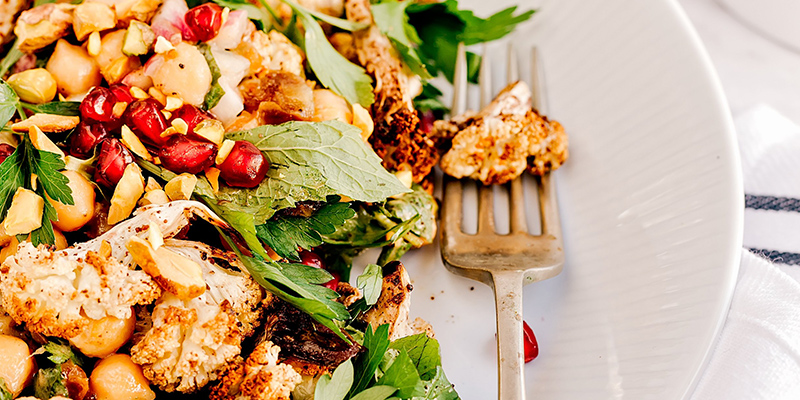Oncologists are often asked if the food a person eats has any real impact on their overall health following a cancer diagnosis. Most oncologists respond by saying that it “doesn’t really matter” – leaving patients confused, and quite honestly, stripped of any hope or empowerment they might have had.
The truth is – the food you eat does matter. We know it matters.
Doctors also know it matters.
However, doctors are very evidenced-based. This is a good thing, because it ensures that patients are getting the very best treatment possible.
Think of it this way.
Rather than thinking of cancer like a disease, think of it as a weed.
No, I’m not much of a gardener, but hang with me here for a minute.
Because of the very nature of cancer, it is vital that oncologists have clear data to support their recommendations of what is deemed safe and effective during cancer. This is what guides their treatments.
So, if cancer is like a weed in your body’s garden, then conventional oncology is primarily focused on ridding you of these weeds through conventional means – surgery, chemotherapy, and radiation.
While clinical trials examining new medications and treatment techniques are the norm in oncology, large-scale trials studying the impact of diet on cancer outcome are limited. This is because nutritional studies are difficult to control.
To illustrate, stop and think about what you ate for lunch yesterday. What did you eat? Did you snack afterwards? Exactly how many almonds did you eat?
Chances are, you probably don’t remember.
However, most nutrition research relies on someone’s self-reporting from memory.
Worse yet. Try going a full day without eating a particular food group.
Say, sugar.
That’s right. No sugar for a full day.
I bet you really wish you had a cookie right now, don’t you?
What is stopping you from eating one? Would anyone notice if you did?
This is what makes nutrition research fundamentally flawed.
This is why oncologists say it “doesn’t matter” what you eat – because clinically significant evidence is not strong enough to support what they will recommend as safe and effective.
This doesn’t mean that there isn’t any research to demonstrate the impact of diet in cancer recovery.
Quite the opposite, really.
For example, the American Cancer Society Cancer Prevention Study II Nutrition Cohort recently studied the effect of diet on cancer treatment in 185,000 men and women. They found that a diet high in saturated fats and refined carbohydrates were linked to a worse patient outcome than a plant-based diet.
Further, a report on “The State of US Health, 1990-2010” published in the Journal of the American Medical Association ranked dietary risks as the leading cause of morbidity and mortality in the US – even surpassing cigarette smoking.
This is where people like myself come in.
My job, the way I see it, is to work with patients to make their garden as inhospitable as possible to the growth and spread of weeds.
After more than 16 years of conducting research in this field, I believe that the best way to do this is through a plant-based diet and regular exercise.
Following these two practices will produce a kind of anti-cancer fertilizer for the body.
You can implement these by adhering to the following principles:
For a whole foods diet that is antioxidant-rich and anti-inflammatory…
- Consume the following foods:
- Fruits and vegetables (organic when possible)
- Whole grains
- Nuts
- Seeds
- Fiber
- Calcium
- Seafood-sourced Omega-3 fatty acids and polyunsaturated fatty acids
- Limit the following foods:
- Red meat
- Processed meat
- Sugar-sweetened beverages
- Trans-fatty acids
- Sodium
For an exercise program that is safe and effective, read this previous blog post we wrote!
Bottom line is –Your food choices matter. They matter because you matter!

